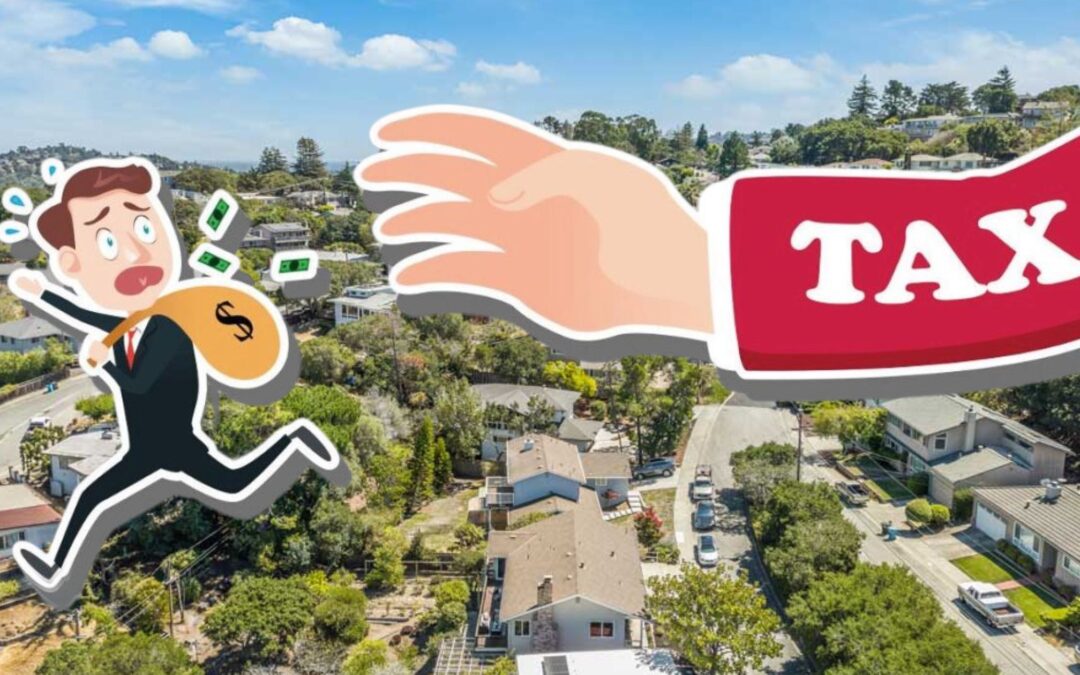2 Strategies on how to Reduce or Avoid Capital Gains Taxes
Bay Area single-family homes have about quadrupled in value over the past 25 years. In 1999, the average San Mateo County single-family home sold for around $600,000. Today the average is $2,500,000. This is certainly true in communities like San Carlos and Redwood City. While that’s fantastic news for those who bought their homes many years ago, countless long-term homeowners feel trapped by the capital gain taxes they would have to pay, were they to sell today. All this makes it important for homeowners to learn how to reduce or avoid capital gains taxes when selling their home.

Over the last 25 years, the average single-family home has experienced $1,900,000 in appreciation. Even with the $500,000 exemption for a married couple, that still leaves $1,400,000 to be taxed. Between Capital Gain and State taxes, a married couple would likely pay around $500,000 in taxes (~35%) had they bought 25 years ago. Most people are paralyzed by the thought of a $500,000 tax bill.
There are two common ways to either reduce or outright avoid capital gains altogether. Here we are going to discuss the first strategy: avoiding the taxes altogether.
Strategy #1: Avoid Capital Gains Taxes
Stark (1031) Exchange: This is a tax rule for investment properties that allows investors to sell their investment property and purchase another investment property without paying taxes regardless of how much the property has gone up in value. The way to make this work for someone living in their home is as follows:
- You need to rent out your home for approximately 2 years. This means you will need to move out and perhaps rent a home for yourself for about 4 years. Why 4 years?
- Well after your home is rented out for 2 years, then you can sell it and buy another property. But that property too needs to be rented out for about 2 years. After that then you can finally move into the new home and make it your primary residence.
There are some other important things to know about 1031 Exchanges:
- First, the IRS has some strict timelines to follow between selling the old home and buying the next property.
- Second, you need to use a 1031 intermediary, you cannot receive the sale proceeds.
- Third, you must purchase a home for the same or greater value. Otherwise, you will pay taxes on the difference.
For example, if you sell your $2,500,000 home and buy a $2,100,000 then you will pay taxes on the $400,000 difference. Now you could sell your $2,500,000 home and buy two or three homes for equal or greater value in a less expensive area and then move into one home as your residence and keep the other two as investment properties.
We know that it could be a hassle to be a landlord, but you could use a property manager to deal with the rental. This will cost you around 8% of the rent and can be deducted.
If you decide to sell the new home later, the capital gains will need to be paid. However, if you keep your home until you pass away, then under current tax rules it’s very likely your heirs could sell it without having to pay taxes.
Taxes could Get much Worse
The Biden administration is proposing raising the top tier capital gain taxes from 20% to 40% for those making over $1,000,000. With State taxes and an increase to the health care tax, the overall capital gain taxes could increase to 58% in California. This could mean instead of paying around $500,000 in taxes for the example above, taxes could jump to around $890,000.

Stark Exchange in Danger
This 1031 strategy would bypass capital gain taxes altogether and has worked for many years. The unknown at the moment is that the Biden administration has also been talking about terminating 1031 Exchanges. You could embark on renting out your home only to find out later that a 1031 Exchange is no longer possible. However, you could still move back in or sell the property and try our Capital Gains Reduction Strategy #2, which we will talk about in the next blog.
Contact Us Today
If this sounds interesting, call us and we can help formulate a strategy that works best for you. These tax strategies require the involvement of very specific professionals and we can bring them into the conversation to assist you.
Please check with your accountant how a 1031 Exchange would impact your unique tax burdens and for updates on tax rules which often change.
About the Author
Know more about Mark and Viv of Vabrato Real Estate
Other Recommended Articles
- Higher Interest Rates, but are You Better Off Buying a Home Today?
- Inheriting Property Under Prop 19 – Not as Good as it once was, but can still Save you some Cash!
- Tax Exemptions when Selling your Home – Great Money Savers
- IRS Rules on Minimum Interest Rate to Charge on Personal Loans


